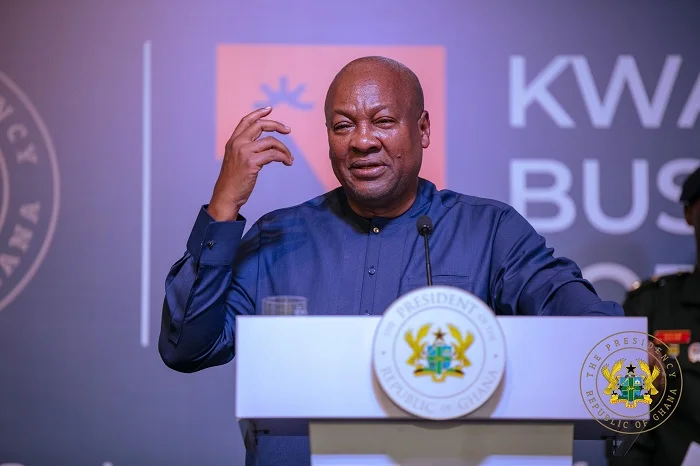GH¢1 Fuel Tax Needed to Save Energy Sector – Mahama Explains

President John Mahama has defended the government’s decision to introduce a new GH¢1 levy on petroleum products, calling it a difficult but necessary step to rescue Ghana’s struggling energy sector. Speaking at the presentation of the final report from the National Economic Dialogue, President Mahama emphasized that the decision was not made lightly, acknowledging the widespread public concern over the new fuel tax.
The GH¢1 Energy Sector Levy, which was approved by Parliament on Tuesday, June 3, 2025, through a majority vote under the Energy Sector Levy (Amendment) Bill, 2025, is aimed at addressing Ghana’s mounting energy sector debt and ensuring a reliable power supply across the country. The levy will apply to every litre of petroleum products sold in Ghana, sparking debate among citizens and stakeholders.
In his remarks, President Mahama stressed that the primary goal of the levy is to prevent the total collapse of the country’s energy infrastructure. He noted that while the additional fuel charge may be burdensome for consumers in the short term, it is a prudent fiscal measure designed to create long-term benefits for the economy and the energy sector.
Addressing concerns about transparency and misuse of public funds, President Mahama gave assurances that proceeds from the petroleum levy would not be deposited into the Consolidated Fund, which has historically been the repository for public revenue. Instead, he said the funds would be ring-fenced and used exclusively for energy sector reforms and investments.
“The GH¢1 levy will be managed in a transparent and accountable manner to ensure that the benefits are visible and impactful for all Ghanaians,” the President stated. “We are committed to using this revenue wisely and to tackle the inefficiencies and malpractices that have plagued the petroleum and power sectors for years.”
He further pledged that his administration would implement reforms aimed at improving operational efficiency and eliminating systemic challenges within the energy value chain.
Despite the backlash from the public and some opposition lawmakers, the government maintains that the Energy Sector Levy is essential to prevent power shortages, improve service delivery, and reduce dependency on foreign loans.
With Ghana’s energy sector facing significant financial challenges, the government believes that the GH¢1 petroleum levy is a bold but necessary step to ensure long-term energy security and economic stability.

